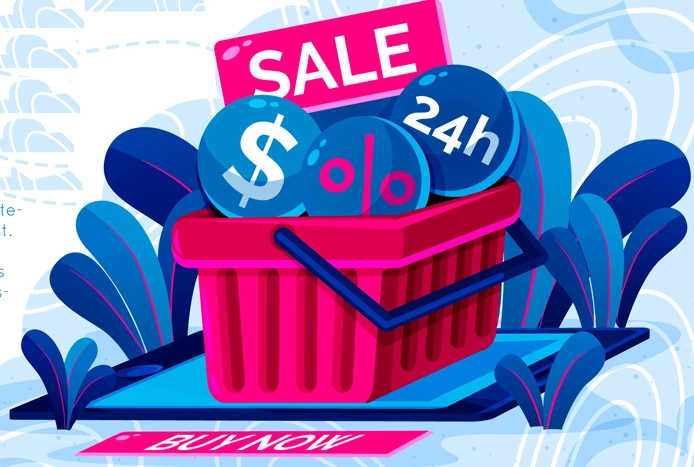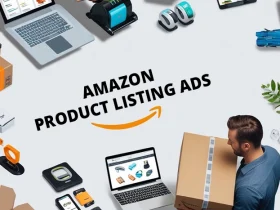
Amazon is one of the most competitive marketplaces in the world, and to stand out, sellers need a well-rounded approach. Whether you’re just starting out or looking to scale, the key to success lies in optimizing your product listings, leveraging advertising effectively, and continuously analyzing performance metrics. In this guide, we’ll break down the essential steps to significantly boost your sales on Amazon.
Optimize Your Product Listings for Maximum Conversions
Your product listing is the first thing potential customers see, and it can make or break your sales. Here’s how to optimize it:
- a) Keyword Research and Optimization
Amazon is essentially a search engine for products. Use tools like Helium 10, Jungle Scout, or Amazon’s own search bar suggestions to find high-performing keywords. Incorporate these naturally into your:
- Title – Include primary keywords and key benefits.
- Bullet Points – Highlight unique features and address customer pain points.
- Product Description – Use persuasive, SEO-friendly language to drive conversions.
- b) High-Quality Images and Videos
Customers rely on visuals when making purchasing decisions. Use:
- Multiple high-resolution images showcasing different angles.
- Lifestyle images showing the product in use.
- Infographics highlighting dimensions, features, and benefits.
- Product videos to increase engagement and trust.
- c) A+ Content and Brand Story
If you’re a brand-registered seller, take advantage of A+ Content to enhance your listing with rich media, comparison charts, and an engaging brand story. Well-designed A+ Content can increase conversions by 5–10%.
Leverage Amazon’s Advertising Platform for Maximum Visibility
Amazon Ads are crucial for increasing traffic and sales. Here’s how to use them effectively:
- a) Sponsored Product Ads
These ads help you rank higher in search results and appear in key areas of Amazon’s website. Focus on:
- High-converting keywords with strong purchase intent.
- Automatic and manual targeting to maximize reach.
- Bid adjustments based on conversion rates and competition.
- b) Sponsored Brands and Display Ads
If you have multiple products, Sponsored Brand Ads showcase your brand and drive customers to your storefront. Sponsored Display Ads help retarget potential buyers who viewed your product but didn’t purchase.
- c) Optimize Advertising Spend
Track Advertising Cost of Sales (ACOS) and Return on Ad Spend (ROAS) to ensure profitability. Test different ad creatives and adjust your bids based on performance data.
Manage Inventory Efficiently to Prevent Stockouts
Running out of stock can drastically hurt your rankings and sales. Here’s how to avoid it:
- Use Amazon’s Restock Recommendations to maintain ideal inventory levels.
- Monitor demand trends to forecast sales accurately.
- Leverage Fulfillment by Amazon (FBA) for faster shipping and Prime eligibility.
- Set up a backup fulfillment plan (Merchant Fulfilled Network) to prevent disruptions.
Price Competitively Without Sacrificing Profits
Amazon shoppers are price-sensitive, and the Buy Box algorithm prioritizes competitive pricing. Consider these pricing strategies:
- a) Dynamic Pricing Tools
Use automated repricing tools like RepricerExpress or Seller Snap to adjust prices based on competitor activity while maintaining margins.
- b) Bundle and Upsell Strategies
Offer product bundles or cross-sell related items to increase order value. Example: Selling a yoga mat? Offer a bundle with resistance bands and a carrying case.
- c) Use Amazon Coupons and Lightning Deals
Running limited-time discounts can boost visibility and attract deal-hunters while increasing sales velocity.
Enhance Customer Engagement for More Reviews and Trust
Customer trust plays a huge role in conversion rates. Here’s how to build a loyal audience:
- Encourage Reviews – Use Amazon Vine or automated follow-up emails via Seller Central.
- Respond to Questions – Engage with customers in the Q&A section to address concerns.
- Maintain a High Seller Rating – Offer fast shipping, high-quality products, and excellent customer service to minimize negative feedback.
Monitor and Analyze Performance Metrics for Continuous Growth
To scale successfully, you need to track your progress and adapt based on data. Key metrics to monitor include:
- Conversion Rate (CVR): The percentage of visitors who purchase.
- Click-Through Rate (CTR): Measures how often shoppers click on your listing.
- Best Seller Rank (BSR): Shows how well your product performs in its category.
- Customer Return Rate: A high rate may indicate quality or expectation mismatches.
Use Amazon Business Reports and Brand Analytics to gain insights and optimize accordingly.
Final Thoughts: Scaling Your Amazon Business Successfully
Tripling your sales on Amazon isn’t about luck—it’s about smart, data-driven strategies. By optimizing your product listings, leveraging Amazon Ads, managing inventory, pricing competitively, engaging with customers, and continuously analyzing performance, you can achieve significant growth.
Amazon’s marketplace is always evolving, so stay proactive, test new strategies, and keep refining your approach. With the right execution, you can transform your business and dominate your niche.




